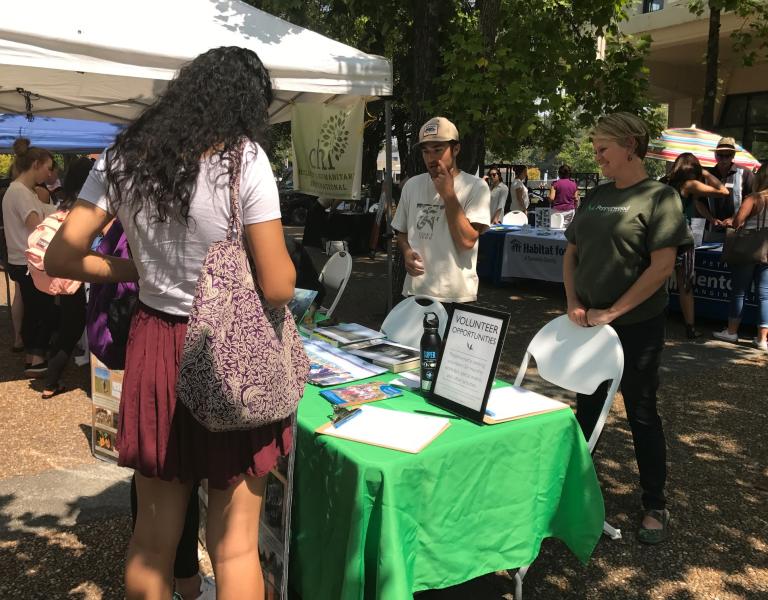Should My Organization Partner with the CCE?
The CCE is here to help you access the resources of the University. Your first step to recruiting SSU student interns and service-learners is to get on the list of approved organizations.
Signup with SSUEngage to get on the list.
Service-learning courses partner with:
501(c)3 nonprofit organizations (excluding co-ops and credit unions)
Governmental organizations
Proprietary healthcare organizations1
Internship sites include:
501(c)3 nonprofit organizations (including co-ops and credit unions)
Other types of nonprofit organizations (including 501(c)4, etc.)
Governmental organizations
For-profit companies
We cannot place students with:
Individuals
Organizations that are not incorporated
Religious institutions (including churches, mosques, parochial schools, seminaries, spiritual centers, synagogues, temples, etc.)2
Exceptions may be made for faith-based organizations with separate 501(c)3 status: please see our Guidelines on Faith-Based Community Partners
Fraternal organizations
Check cashing companies
Tobacco companies (including e-cig companies)
Cannabis businesses3
Organizations on the Southern Poverty Law Center's list of hate groups
We cannot place students in positions:
In private homes
In which driving is the activity
The risk management processes for internships and service-learning that occur outside the US and its territories are managed by the Global Engagement Office.
1. Service with proprietary healthcare organizations must be direct with patients/clients and be distinct from any services provided by paid employees.
2. Guidelines on Faith-Based Community Partners
3. Federal law still considers cannabis an illegal ‘controlled substance.’ CSU accepts a lot of Federal funding so we cannot encroach on Federal law and although federal law and regulations do not directly prohibit endorsement of cannabis, it is implied. This means we can’t promote internship sites or employment opportunities at cannabis businesses that are directly involved in the manufacture, distribution, dispensing, or possession (if not actual use at the job site) of an illegal controlled substance as a viable “workplace”. We can even refuse to accept job postings for work in the cannabis industry (even if the work is as a cashier, in information technology, or in marketing, etc.) due to the illegal nature of these activities. Doing so arguably would run afoul of the intent and implication of the federal Drug Free Schools and Workplace Acts.



